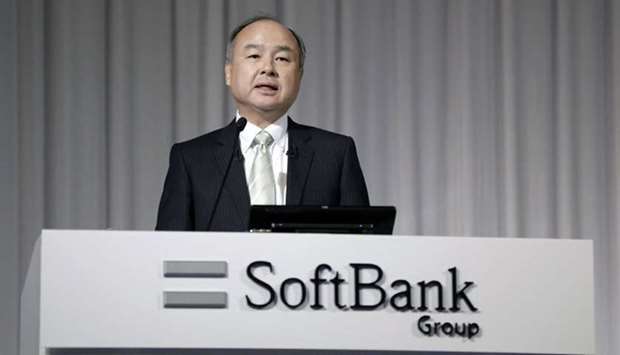Japan Inc’s record pace of stock buybacks could be set to accelerate on the coronavirus-induced market panic, as long as the potential negative impact on corporate bottom lines doesn’t derail the trend altogether.
The nation’s companies bought back ¥7.3tn ($68bn) worth of stock in the fiscal year ended March 31, a record high for the second straight year, according to Nomura Securities Co.
The surge came as ongoing corporate governance changes combined with low share prices amid relatively high profits, especially during the first half, strategists led by Yunosuke Ikeda wrote in a note.
The Topix index is down nearly 23% since the start of the year on concern over the economic impact of the virus.
While this might seem like ideal conditions for conducting buybacks, that assumes the companies can maintain their financial health.
“We envision two ways the Covid-19 outbreak could influence share buyback trends. The first is negative, in that the pandemic could lead to a decline in the profits that fund shareholder returns,” Ikeda wrote. “The other is positive, in that the decline in share prices is likely to make management at more companies see their own stock as undervalued.”
In the US, cash-conserving companies have been reining in buybacks, with almost $190bn suspended by S&P 500 firms alone, according to data compiled by Goldman Sachs Group Inc.
By contrast, the positive influence seems to be winning out so far in Japan, with Nomura counting 132 buyback announcements in March alone, worth a total of ¥734bn.
Most notably, SoftBank Group Corp announced a plan to buy up to ¥500bn of its stock over the next year.
The tech giant run by Masayoshi Son is poised to lift that amount even more after saying it will set aside ¥2tn of the proceeds from planned asset sales for additional purchases. While the market awaits further news on that, Yamada Denki Co got Japan’s new financial year off to a jump-start by unveiling a ¥50bn buyback plan on Wednesday.
The electronics retailer’s shares rose 12% yesterday, the most since its listing on the Tokyo Stock Exchange’s main board.
Still, its stock had dropped 31% from a February high before the buyback announcement.
“It’s a big buyback at 20% of what I call ‘Real World Float,’” excluding treasury shares and those owned by strategic holders, said Travis Lundy, an analyst who publishes on Smartkarma. “They don’t guarantee to finish,” Lundy said. “If monthly sales start to go bad, I’d worry about them completing it.”
Most Japanese companies are due to report earnings for the just-ended fiscal year during the next six weeks or so, with most also expected to provide forecasts for the coming year.
Nomura estimates that corporate net income fell 11.5% in the year to March 31, but said it expects overall dividends to remain flat. The broker warns that buybacks could suffer as profits decline.
“The negative effect could get stronger as the impact of the pandemic on earnings becomes clearer,” Ikeda wrote, adding that full-year results announcements will be the key for gauging the sustainability of the momentum in buybacks.

Masayoshi Son, chairman and chief executive officer of SoftBank Group, speaks during a news conference in Tokyo. The Japanese firm announced a plan to buy up to u00a5500bn of its stock over the next year.
